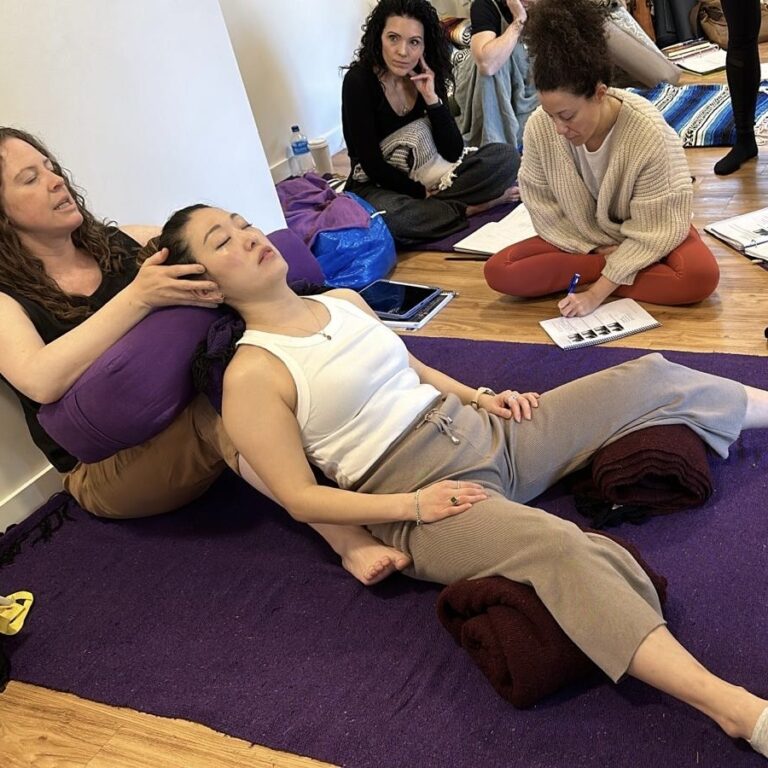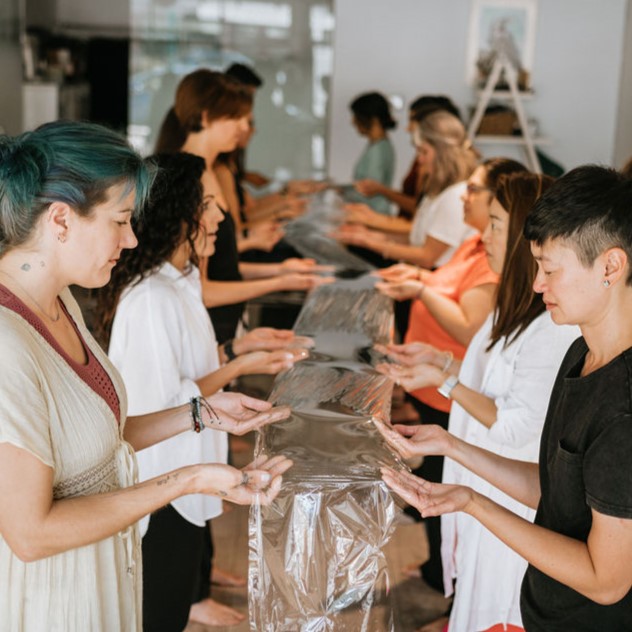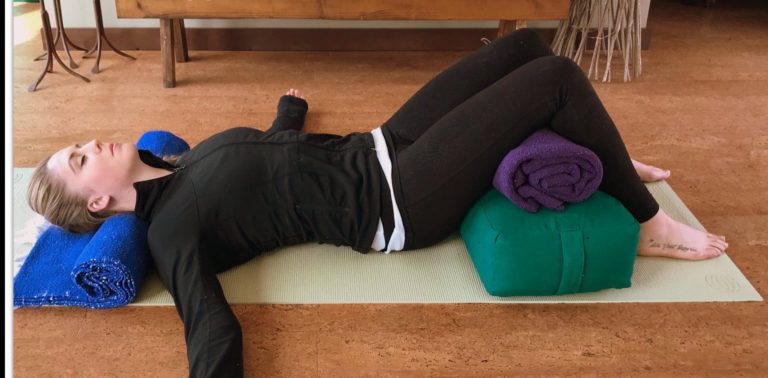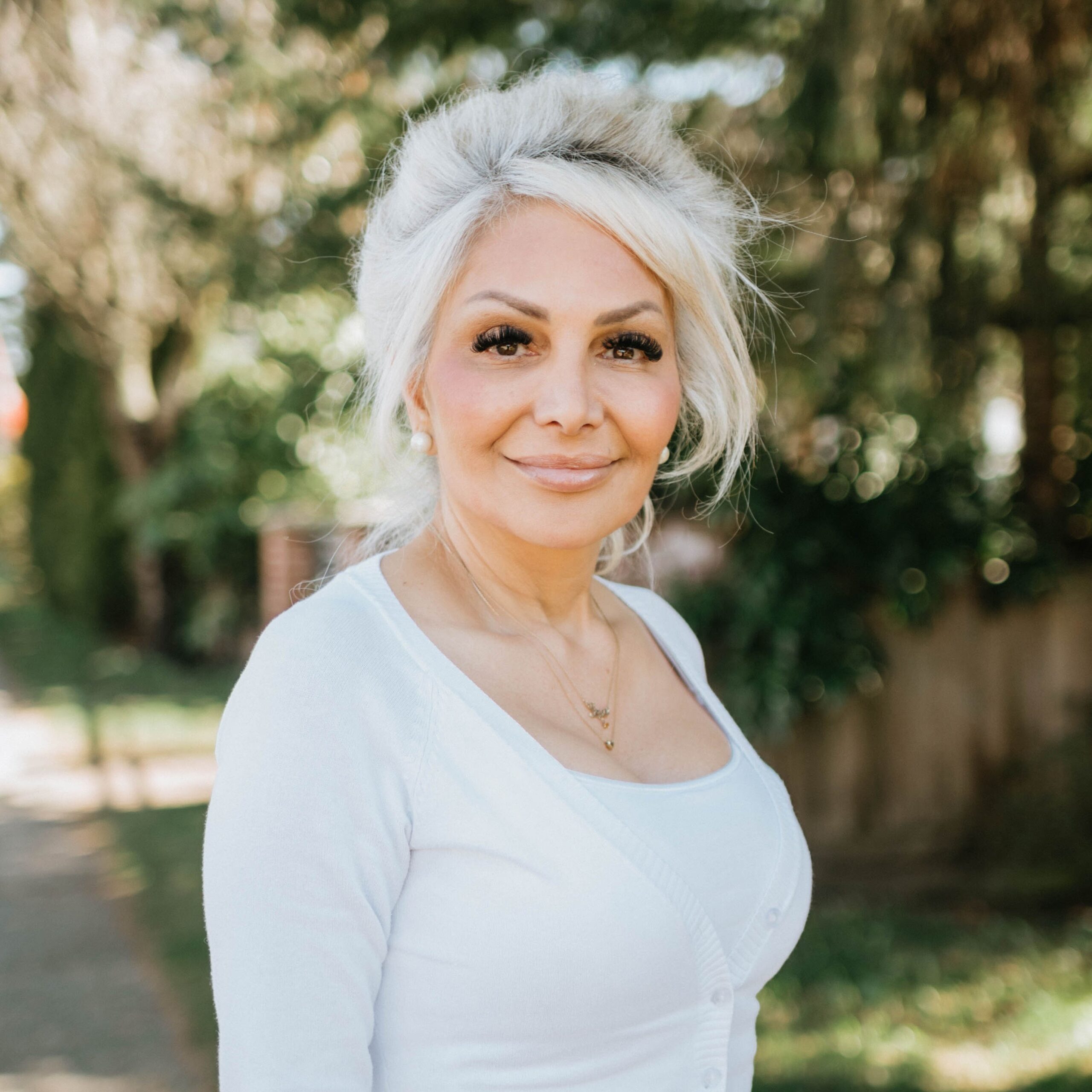Expression Through Felt Wisdom is What Heals
Integrative Somatic Therapy Practice (ISTP)™
Trauma, Emotions, and the Body
January 10th. to April 23rd. 2026
TUITION: $2,701.13 CAD (gst+admin included)
[2026 Application now OPEN until full ]
Accepting min 14 to maximum 20

LEVEL 2 Comprises of 2 Training Components
COMPONENT 1
- Certificate in Integrative Somatic Therapy Practice (ISTP)™
- NEW Method of Delivery:2 days on-line & 3 days in person.. 5 days training
- Tuition Fee $2,701.13 CAD (accommodation & meals not included)
- Clinical Supervision Fee: $600 CAD
- For curriculum, View HERE (scroll to bottom)
COMPONENT 2
- Certificate in Integrative Somatic Bodywork, View HERE
- Method of Deliver: 3 days in person experiential training
- Tuition Fee $4,095.00 CAD (accommodation & meals not included)
- Training completion allows students to register with Namasta, View HERE for 150-HR Bodywork Practitioner
- Training completion allows students to register with NHPC (National Health Practitioners of Canada) view HERE for 150-HR Thai Yoga Massage Practitioner
PLEASE NOTE: Both components are designed to be taken tandem with one another. For those with previous trainings in yoga and/or bodywork, there will be NO exemptions given as component 2 is designed specifically as best practice in trauma recovery for somatic therapy.
- Complete 26 online self-study course modules
- Participate in a 5 day experiential skills-based practice
- Complete minimum 37.50 hrs. to 50 hrs. documented practicum sessions*
- Participate in 6 (2.0 hrs.) online clinical group supervisions*** (total fee $600 CAD).
- Complete the 150-Hour Integrative Somatic Bodywork, View Here
- Sign the training & license agreement
- Refer to yourself as ISTP™ Trained Therapist or Practitioner
- Register with the National Health Practitioners of Canada, View HERE for 150-HR. Thai Yoga Massage Practitioner OR with Namasta, View HERE for 150-HR Bodywork Practitioner.
- Register for Level 3: Integrative Somatic Breathwork, View HERE
- Work towards becoming certified in Integrative Somatic Therapy Practice
PLEASE NOTE: To become certified in ISTP, students are required to complete level 2 (components 1 & 2) and Level 3 (Integrative Somatic Breathwork). While some students may come to our training with experiences bodywork, our program is designed specifically for somatic therapy as best practice in trauma recovery.
IMPORTANT NOTICE: Due to the nature of the training, the intensity of this program may be triggering for many, if not all students and will include an investigation of sometimes difficult emotional states originating in childhood. This program is designed to train therapists and health professionals as continuing education. It is not meant to be a container for personal therapy. Due to the depth of the work, we require that all students be simultaneously engage in regular personal therapy with a therapist of their choice.
REGISTRATION NOW OPENS UNTIL FULL
Location: Bethlehem Spiritual Centre, View Here
LEVEL 2
Certificate in Integrative Somatic Therapy Practice (ISTP)™
Component 1: Integrative Somatic Therapy Practice (ISTP)™
We heal when we feel safe in relationships, connected to our breath; aligned with body, mind, and emotions. When we feel safe, we can connect to the body and develop the capacity to open to our vulnerabilities and emotional expressions to discover our truths. Expressions through felt wisdom is what heals. After completion of Level 1 in Fundamentals in Trauma Recovery, we orient our intention to developing specialized skills for working with the body ~ Body-Mind-Emotion Self-Regulations for healing trauma.
Level 2 Certificate Training comprehensively integrates 7 core practices used in Integrative Somatic Therapy Practice for somatic processing and integration. Core Practices include the wisdom of Yoga, the present focus of Mindfulness, the power of Breathwork, the intuitive rhythm of Ceremony, the resonance of Sound Healing, the depth of Resilience Enhancement, Ceremony, Sound Healing, the wisdom of Somatic processing and integration. These core practices are designed to enhance the body’s own capacity to heal. Students will learn to apply specialized skills to help clients connect to body sensations, tensions, and holding patterns developed over time for self-protection. Learn how to support your clients to cultivate moment-to-moment awareness of body, breath, and emotions to facilitate release of body-stored trauma. “The intent is to process and integrate unconscious memories and past experiences to encourage a kinder, more compassionate way of relating to SELF; body, mind and soul”, Ratha Chek.
This is a 6-month certificate training consisting of self-paced online Course Study, 4 days experiential skills-based training, 37.5 to 50 practicum hours and 5 group clinical supervisions. The course study consists of 26 online modules designed to engage the multimodal adult learner. The 4-day experiential training consists of one day online (via live interactive webinar) and 3 days in person on Vancouver Island, BC Canada.
Once you have completed the online course study modules and the 4-day experiential training, you will gain an opportunity apply theoretical knowledge into practice;
- 37.50 hrs. – 50 hrs. (25 sessions approx.) of documented practice*,
- 12 hrs. Group Clinical Supervision***. Supervision fee of $600.00 CAD total to be paid directly to clinical supervisors. Supervision fee is not included in tuition fee.
*Documented Practicum hours can be obtained via 3 options:
- Within your training cohort (students training in your group)
- With your own clients
- With clients referred by the institute
*** GROUP CLINICAL SUPERVISION:
A total of 12 hours of Group Supervision is offered via online to provide students with an opportunity to consult, gain feedback and support during your practicum. Group supervision is also an opportunity for students to gain feed back from other students, learn from one another to deepen somatic therapy practice.
GROUP SUPERVISIONS also includes 6 topics areas for discussions and explorations to reinforce skills. Group Topics include:
- Beginning your first ISTP™ session: Intake, assessments, informed consent, session duration/rate, liability (professional) insurance.
- Ethical Issues in Somatic Psychotherapy: Dual & multiple relationships, documentations, using touch, adequate supervision.
- Navigating internal/external resources and activation. When to stay with the resources & went to move through activation
- Exercises to restore Social Engagement. From stage 2 (charge) to stage 1 (relax): RARI model. What to do when client is activated or overactivated? How to distinguish between integrative versus eclectic practice in an ISTP™ session.
- Understanding and working with resistance. Working with transference & countertransference.
- Inner Child or Shadow work in an Integrative Somatic Therapy Practice.
LEARNING OBJECTIVES
- Describe the rationale and practice guidelines for applying mindfulness, breathwork, resourcing, restorative postures, touch, and music in trauma recovery
- Explain how the 7 practice elements of ISTP™
are used for somatic processing and integration - Apply supported postures to engage in felt-sense through establishing safety and stability in the body
- Learn the art of invitational language and how to engage the body through various supported postures
- Utilize various props to support and release muscular tension/pain held in the physical body
- Understand 3 fundamentals of breathwork and apply techniques to mediate resilience in sympathetic and parasympathetic nervous systems
- Identify and apply key points in trauma work
- Understand the application of an ISTP™ model in relations to “best practice” model in trauma recovery
- Facilitate moment-to-moment awareness of body sensations, breath, emotional energy and thought to identify and integrate traumatic memories/experiences
- Learn to support felt-sense experiences (felt wisdom) through tracking physical sensations and emotional charge during an ISTP™ Session
- Learn to develop a counsellor’s practice of connectedness to one’s own felt wisdom to avoid absorbing client’s energy and emotional charge
PREREQUSITE : Completion of Level 1
PLEASE NOTE: To become certified in ISTP, students are required to complete level 2 (components 1 & 2) and Level 3 (Integrative Somatic Breathwork). While some students may come to our training with experiences bodywork, our program is designed specifically for somatic therapy as best practice in trauma recovery.
COMPONENT 2: Integrative Somatic Bodywork Practitioner (ISBP)™
Bodywork in a therapeutic relationship is integral in ISTP™. Integrative Somatic Bodywork honours the traditional practice of Thai Yoga Massage while integrative trauma-informed Embodiment Yoga practices, functional anatomy and Craniosacral informed touch for nervous system regulation and adaptation. This is a 150 hrs. certificate training in Yoga Skills and Bodywork designed to enhance Somatic Psychotherapy skills for best practice in trauma recovery. This certification offers experiential training and skill applications based on a coherent theoretical perspective with supervisions from teachers with over 25 years of touch training.
In ISTP™, we used touch as a resource and reparative process where touch had been withheld and/or used to violate. However, touch in trauma therapy is often hinged on one word: DON’T! More often than not, we are discouraged from touching our clients for fear of crossing boundaries, transference or countertransference, or allegations of wrongdoing (Older, 1977) and Wilson (1982).
Research indicates that touch supports bonding and reduces the experience of pain. Positive physical aspects of touch includes lifting mood in the treatment of depression, reducing anxiety, pain, relief, reduction in muscle tension, decreasing raised blood pressure enhancement of immune function, improving sleep, decreasing symptoms of sexual abuse, reducing aggression in adolescents, and improving weight gain in preterm neonates (Field, 2003; Westlanourd, 1993).





*Conditions
a. If public health restrictions prevent the program from taking place, a refund will be issued, less a $100 processing fee.
c. If training is experiencing a lack of registrations (as the 90-day date approaches).
In level 2, We learn to offer Supported Postures (yoga), Bodywork and breathing techniques to facilitate attunement to the body for somatic processing and integration. Facilitating postures that feel safe and comfortable, allow the breath to flow to different areas of the body where trauma is stored. When we create an opportunity for the body to move safely between postures, breath flows through the body to allow unconscious memories and repressed emotions to percolate and be released from the body. Breath moves energy and emotions are energy-in-motion.

Illness is thought to be the result of blocked energy. When our natural state of ease is blocked, we develop disease. Postures and breathing practices release blockages so that vital energy can flow freely, and healthy functioning can be restored
Chinese Medicine Tweet
Emotions follow body postures and physical holding patterns. Releasing physical holding patterns changes one's mental patterns as well. Change is experienced on all levels. Thoughts and emotions manifest in the body and through physical releases using restorative yoga postures, we have the potential for deep emotional releases and restructuring of mental patterns as well. New connections are created in the mind and body so that patterns of tension are negatively (literally our ruts) are replaced by new groves of relaxation and positivity.

Embodiment is the art of being in the present in the body as we experience life. In our trainings, embodiment is the practice of moment-to-moment process by which participants allow awareness to enhance the flow of sensations, feelings, thoughts, images and energies through their bodily selves. We are born into bodies that travel fluidly through an infinite range of movement and feeling. Although over time, through physical and/or emotional injuries, cultural conditionings, age, and sedentary habits, our movement expression gets narrower and narrower. We forget the physical freedom we once enjoyed,
To be embodied is:
- To be aware and awake to the sensations in our physical body, the ebb and flow of our emotions, and the movements of our mind
- To be present in our life, right here and now
- To allow life force to move through our bodies in ways both familiar and unpredictable
- To live and dance with the universal spirit, expressed in the world through our soulful, one-of-a-kind self
Trauma shatters one's sense of trust and safety. The wisdom of Yoga empowers individuals towards a renewed sense of hope and trust in self that is worthy of love & abilities. Yoga is the heartbeat of Integrative Somatic Therapy Practice. Yoga creates an opportunity for individuals to gain control; allowing access to body sensations and felt wisdom – “the unspoken voice”. Yoga skills used in ISTP™ is a truly life-empowering spiritual practice.
Ratha Chek Tweet
